#ReclaimYourFace
Filter by...
-

How to fight Biometric Mass Surveillance after the AI Act: A legal and practical guide
The EU's Artificial Intelligence Act has been adopted, laying out an in-principle ban on live mass facial recognition and other public biometric surveillance by police. Yet the wide exceptions to this ban may pave the way to legitimise the use of these systems. This living guide, for civil society organisations, communities and activists, charts a human rights-based approach for how to keep resisting biometric mass surveillance practices now and in the future
Read more
-
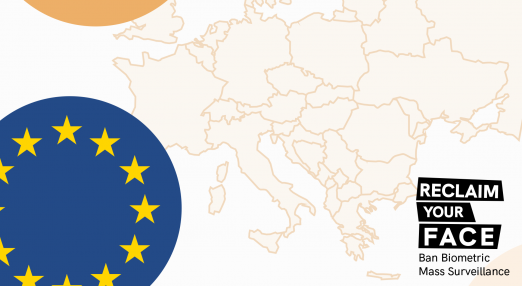
Will MEPs ban Biometric Mass Surveillance in key EU AI Act vote?
The EDRi network and partners have advocated for the EU to ban biometric mass surveillance for over three years through the Reclaim Your Face campaign. On May 11, their call may turn into reality as Members of the European Parliament’s internal markets (IMCO) and civil liberties (LIBE) Committees vote on the AI Act.
Read more
-
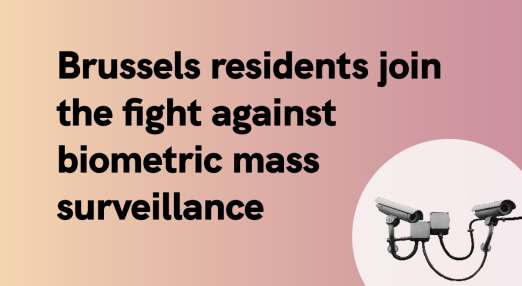
Protect My Face: Brussels residents join the fight against biometric mass surveillance
The newly-launched Protect My Face campaign gives residents of the Brussels region of Belgium the opportunity to oppose mass facial recognition. EDRi applauds this initiative which demands that the Brussels Parliament ban these intrusive and discriminatory practices.
Read more
-
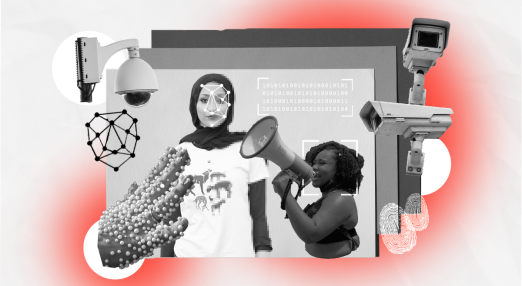
Phone unlocking vs biometric mass surveillance: what’s the difference?
Facial recognition is one of the most hotly-debated topics in the European Union’s (EU) Artificial Intelligence Act. Lawmakers are more aware than ever of the risks posed by automated surveillance systems which pervasively track our faces – as well as our bodies and movements - across time and place. This can amount to biometric mass surveillance (BMS), which undermines our anonymity and freedom, and weaponises our faces and bodies against us. The article explores the types of biometric technology and their implications.
Read more
-

Remote biometric identification: a technical & legal guide
Lawmakers are more aware than ever of the risks posed by automated surveillance systems which track our faces, bodies and movements across time and place. In the EU's AI Act, facial and other biometric systems which can identify people at scale are referred to as 'Remote Biometric Identification', or RBI. But what exactly is RBI, and how can you tell the difference between an acceptable and unacceptable use of a biometric system?
Read more
-
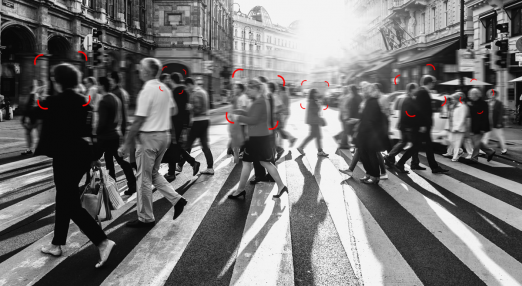
Italy introduces a moratorium on video surveillance systems that use facial recognition
On 1 December 2021, the Italian Parliament introduced a moratorium on video surveillance systems that use facial recognition technologies. This law introduces, for the first time in an EU Member State, a temporary ban for private entities to use these systems in public places or places accessible to the public. This moratorium is an important achievement: it recognises the dangers posed by technologies such as facial recognition to people's rights and freedoms. The moratorium will be in force until 31 December 2023 at the latest, unless a new law is introduced on the subject of biometric surveillance before that date.
Read more
-

New German government calls for European ban on biometric mass surveillance
The newly-agreed German government coalition has called for a Europe-wide ban on public facial recognition and other biometric surveillance. This echoes the core demands of the Reclaim Your Face campaign which EDRi has co-led since 2020, through which over 65 civil society groups ask the EU and their national governments to outlaw biometric data mass surveillance.
Read more
-

New RESOURCE PAGE helps supporters BAN biometric mass surveillance
The Reclaim Your Face collective has put together a brand new Resource Page, helping all activists spread the word and take action easily, online, offline – at all times, wherever they are.
Read more
-
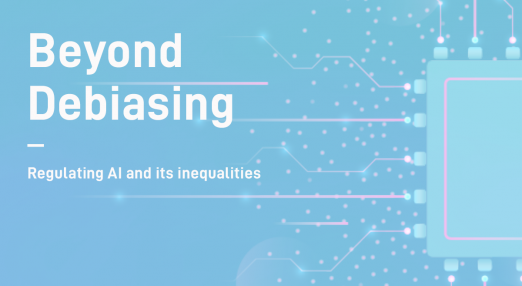
Booklet: If AI is the problem, is debiasing the solution?
The development and deployment of artificial intelligence (AI) in all areas of public life have raised many concerns about the harmful consequences on society, in particular the impact on marginalised communities. EDRi's latest report "Beyond Debiasing: Regulating AI and its Inequalities", authored by Agathe Balayn and Dr. Seda Gürses,* argues that policymakers must tackle the root causes of the power imbalances caused by the pervasive use of AI systems. In promoting technical ‘debiasing’ as the main solution to AI driven structural inequality, we risk vastly underestimating the scale of the social, economic and political problems AI systems can inflict.
Read more
-

Who, What, Why? Your guide to all things ECI! #ReclaimYourFace
Calling all digital rights heroes: EDRi needs your support! As part of the Reclaim Your Face campaign, we are running a European Citizens’ Initiative (ECI) to ban biometric mass surveillance practices in the EU. To be successful, we need to collect 1 million signatures. Read more to find out how we keep ECI data safe, and how your signature can make a big difference.
Read more
-

Roma & Sinti rights, Resistance & Facial Recognition: RYF in Conversation…
For communities that have been historically sidelined, the promises of digitalisation can instead become a vessel for yet more discrimination and unequal treatment. Facial recognition in particular has a sinister and dark history which links to the persecution of Romani communities. If you missed our webinar on Roma and Sinti rights and the rise of facial recognition across Europe, you can catch up here and learn what the digital rights community can and should do!
Read more
-

Romani rights and biometric mass surveillance
The rights of Romani people should be an important topic for anyone that cares about digital rights. In this blog, hear from experts in Roma, Sinti and digital rights about why facial recognition is an important issue (and what the rest of the digital rights community can learn), and check out the Reclaim Your Face campaign’s first ever resource in the Sinti language!
Read more
